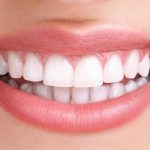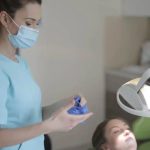When Do Baby Teeth Fall Out? A Guide to Your Child’s Tooth Development
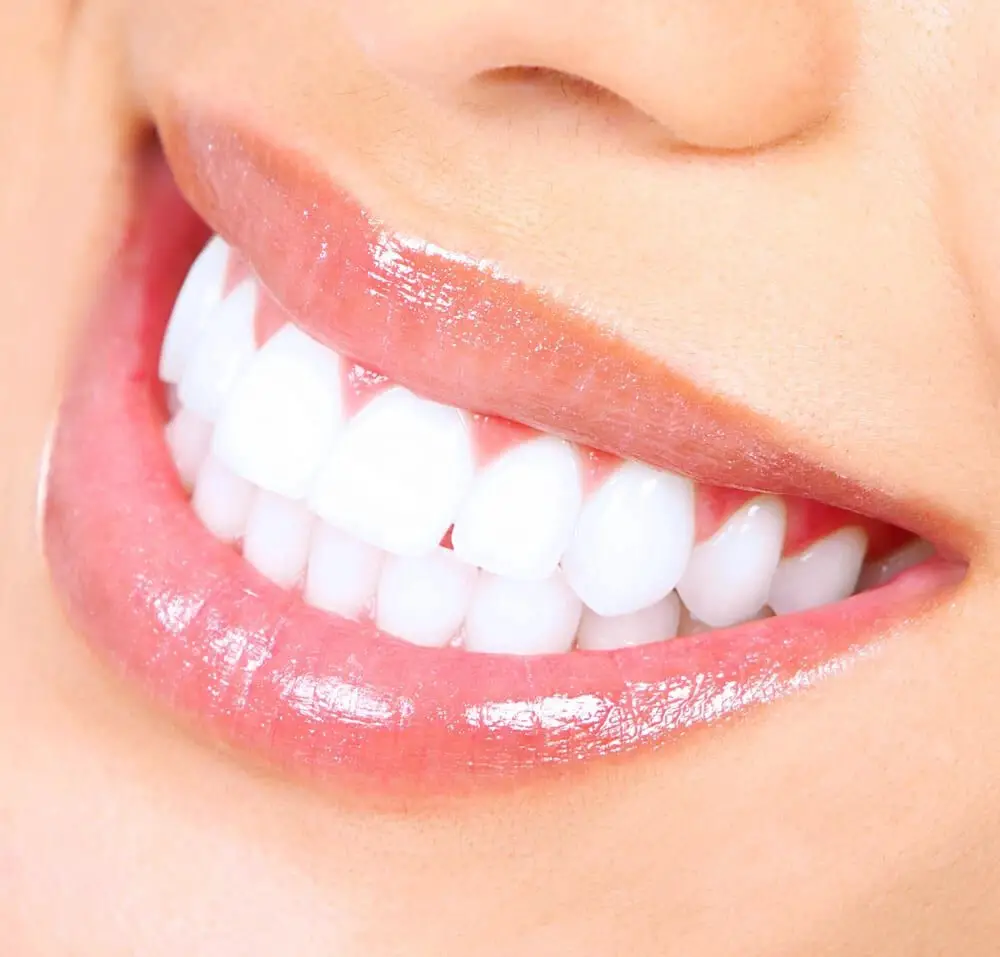
As a parent, it is crucial to keep track of your child’s tooth development to ensure that their oral health is in good condition. One of the most common questions that parents have is, \When do baby teeth fall out?\ Knowing the answer to this question can help you prepare your child for the changes that will happen in their mouth and ensure that their permanent teeth come in correctly. The process of tooth development in children can be exciting and somewhat confusing at the same time. Understanding what to expect during this period can help you identify any potential issues that your child may have with their teeth and gums. In this guide, we will discuss the typical timeline of baby teeth falling out, the importance of baby teeth, and what you can do to help your child maintain good oral hygiene during this period.
Baby teeth, also known as primary teeth, play a crucial role in a child’s oral health. They serve as placeholders for adult teeth, ensuring that they grow in the proper position. Additionally, baby teeth aid in speech development, allowing children to pronounce words and form sounds correctly. Children also require their baby teeth to chew and bite properly, which is essential for proper nutrition and digestion. Moreover, maintaining healthy primary teeth can prevent future dental problems, such as gum disease and tooth decay. Therefore, it’s important to instill good oral hygiene habits in children from an early age to ensure healthy baby teeth and a lifetime of good oral health.
The general timeline for baby teeth eruption and shedding varies from child to child, but it typically occurs between 6 to 12 months of age. The first teeth to emerge are usually the two front bottom teeth, followed by the two front top teeth. By the age of 3, most children have a full set of 20 primary teeth. The first teeth to fall out are typically the front bottom teeth, which are then replaced by permanent teeth around the age of 6. The shedding process continues until all 20 primary teeth have been replaced by permanent teeth, which usually occurs by the age of 12. It’s important to keep in mind that these are general timelines and may vary from child to child.
Understanding Baby Teeth
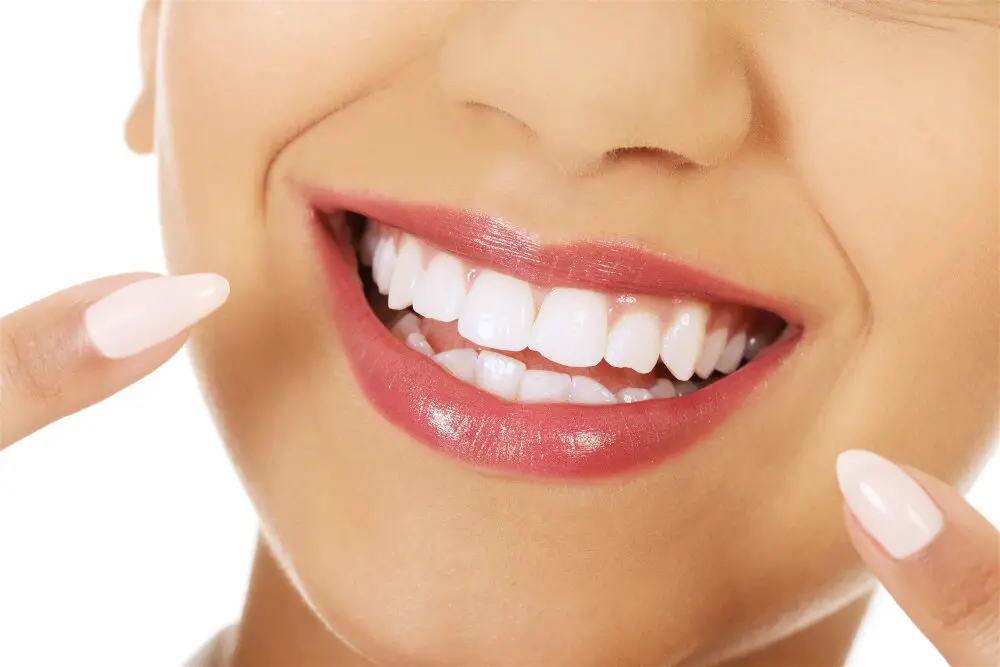
Baby teeth, also known as primary teeth, are the first set of teeth that appear in a child’s mouth. These teeth usually start to emerge at around six months of age and continue to come in until the child is about two or three years old. Baby teeth play an essential role in a child’s overall oral health and development, as they help with chewing, speaking, and the proper alignment of permanent teeth as they grow in. Understanding baby teeth is crucial for parents to ensure their child’s oral health and development. Baby teeth are made up of the same parts as permanent teeth, including the enamel, dentin, and pulp. However, baby teeth are smaller and whiter than permanent teeth and eventually fall out to make way for the permanent teeth to come in. It is essential to take proper care of baby teeth by brushing twice a day with a soft-bristled brush and fluoride toothpaste, flossing daily, and scheduling regular dental checkups. Additionally, parents should avoid giving their child sugary drinks and foods that can cause tooth decay and cavities. By taking care of baby teeth, parents can help ensure their child’s overall oral health and development.
Baby teeth, also known as primary teeth, are the first set of teeth that emerge in a child’s mouth. These teeth typically begin to appear between the age of 6 months and 1 year, and by the time a child is 3 years old, they should have a full set of 20 baby teeth. Baby teeth are important for a child’s oral health, as they help with chewing, speaking, and the development of proper jaw and facial structure. As a child grows and their adult teeth begin to form, baby teeth will eventually fall out to make room for the permanent teeth. While baby teeth are temporary, it’s still important to take care of them to ensure they stay healthy and strong until they naturally fall out.
Children usually have 20 baby teeth, also known as primary teeth. These teeth start to appear around 6 months old and continue until the child is about 3 years old. The first teeth to come in are usually the bottom front teeth, followed by the top front teeth. As the child grows, more teeth will appear until they have a full set of 20. These baby teeth are important for chewing, speaking, and maintaining space for the permanent teeth that will eventually replace them. They will begin to fall out around age 6 or 7, making room for the permanent teeth to grow in.
Baby teeth, also known as primary teeth, are the first set of teeth that develop in a child’s mouth. They typically begin to appear at around six months old and are eventually replaced by adult teeth. There are 20 baby teeth in total, with 10 in the upper jaw and 10 in the lower jaw. Adult teeth, on the other hand, are the second and final set of teeth that a person will have. They usually begin to emerge at around age six and continue to come in until the late teenage years or early adulthood. There are 32 adult teeth in total, with 16 in the upper jaw and 16 in the lower jaw. Unlike baby teeth, adult teeth are meant to last a lifetime and are much larger and stronger than their primary counterparts. While baby teeth are important for a child’s development and ability to eat and speak, they eventually fall out to make room for adult teeth which are better suited for the demands of adult life.
Eruption of Baby Teeth
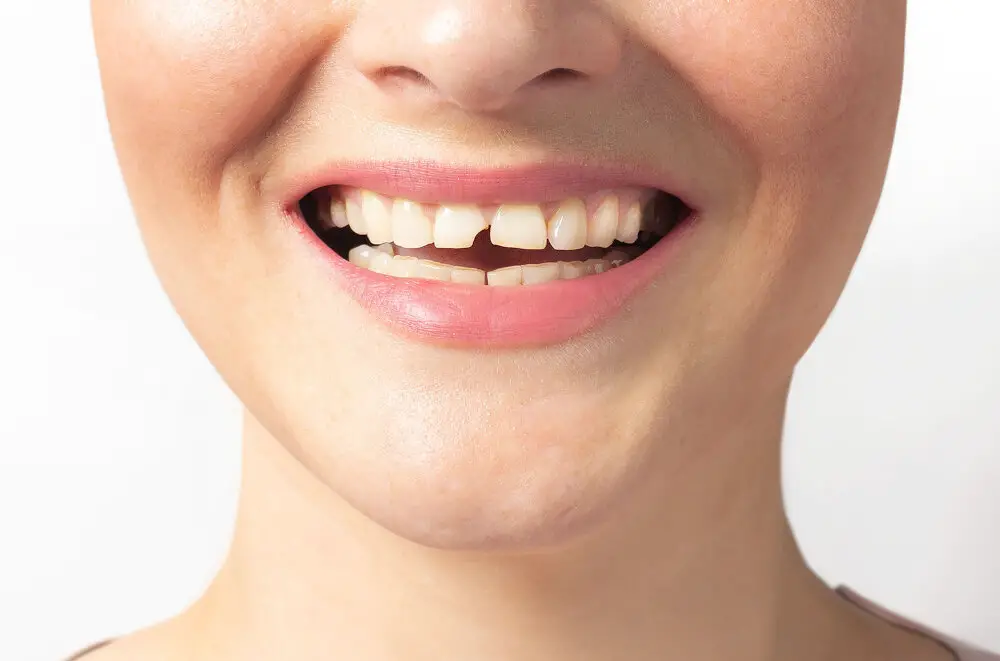
The eruption of baby teeth, also known as deciduous teeth, is an essential part of a child’s dental development. Typically, a child’s first tooth will erupt between six and twelve months of age, with the remaining 19 teeth following over the next two to three years. The eruption of baby teeth can cause discomfort and irritability for some children, leading to drooling and fussiness. However, this is a natural process, and parents can help alleviate their child’s discomfort by providing a cool teething ring or rubbing their gums with a clean finger. As baby teeth begin to emerge, parents should start teaching their children the importance of good dental hygiene. Brushing twice a day with a soft-bristled toothbrush and fluoride toothpaste, flossing daily, and limiting sugary snacks and drinks can help prevent tooth decay and promote healthy teeth and gums. Parents should also schedule regular dental check-ups for their children, starting around their first birthday, to ensure their teeth are developing correctly and to catch any potential problems early on. By taking care of their child’s baby teeth, parents can help ensure their child’s long-term dental health.
The timeline for baby teeth eruption can vary from child to child, but typically the first tooth will appear between six and twelve months of age. The incisors, or front teeth, usually come in first followed by the molars and canines. Most children will have all 20 of their baby teeth by the age of three, and these teeth will begin to fall out around age six or seven as the permanent teeth start to come in. It’s important to keep in mind that every child is different, and some may experience delays or early eruption of their teeth. Regular dental checkups can help monitor your child’s tooth development and ensure that any issues are addressed early on.
The teething process is a natural and exciting milestone in your child’s development. It usually occurs between 4 to 7 months of age, although some babies may start as early as 3 months, or as late as 12 months. During this time, your baby’s teeth will begin to emerge through the gums, causing discomfort and irritability. Symptoms of teething may include drooling, fussiness, and a strong desire to bite or chew on objects. You may also notice changes in your baby’s sleeping and feeding patterns. While teething can be challenging for both you and your child, it is important to provide comfort and relief through gentle massaging of the gums, teething toys, and cold compresses. Remember that every baby is unique, and the teething process may vary from one child to another.
Teething can be a challenging time for babies and parents alike. Fortunately, there are a few things you can do to help your little one feel more comfortable. One of the most effective ways to relieve teething discomfort is to give your baby something to chew on. Teething rings, cold washcloths, and even frozen fruit can provide relief by numbing the gums and providing a counterpressure that eases pain. You can also gently massage your baby’s gums with a clean finger to help soothe soreness. If your baby is particularly fussy, you may want to consider giving them a mild pain reliever like acetaminophen or ibuprofen, but be sure to consult your pediatrician first. With a little patience and some TLC, you can help your baby weather the teething storm and emerge with a bright, healthy smile.
Shedding of Baby Teeth
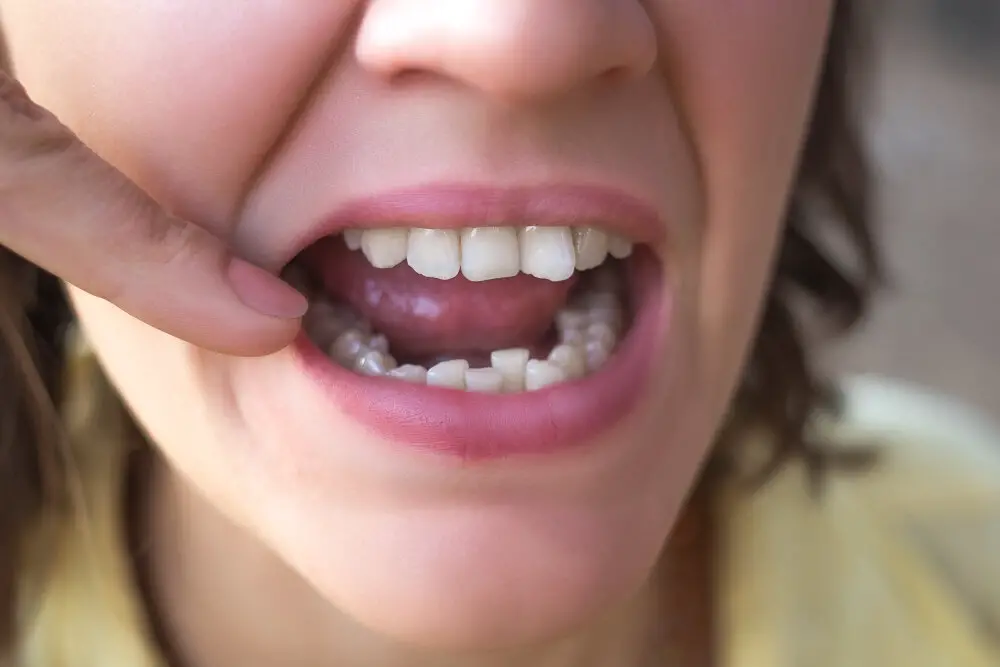
Baby teeth, also known as primary teeth, are temporary teeth that start to emerge in a child’s mouth around six months of age. Over time, these teeth play a crucial role in helping children speak, chew, and maintain proper alignment of their permanent teeth. As a child grows, their baby teeth will eventually need to be shed to make way for their permanent teeth. This process typically starts around the age of six and continues until the child is around 12 years old. The shedding of baby teeth is a natural and essential part of a child’s dental development, as it makes room for the larger, stronger adult teeth that will eventually emerge. The process typically begins when the roots of the baby teeth start to dissolve, which causes them to loosen and eventually fall out. In some cases, the baby teeth may need to be extracted by a dentist if they fail to loosen on their own. Although the timing of the shedding process can vary from child to child, it is important for parents to monitor their child’s oral health and seek professional help if any issues arise.
The timeline for baby teeth shedding can vary from child to child, but typically begins around the age of 6 or 7 years old. The process of teeth shedding can continue until the age of 12 or 13 years old. It is important to note that the order in which the teeth shed can also vary, but typically the front teeth are the first to go. As the adult teeth begin to push through, the baby teeth will loosen and eventually fall out. It is important to ensure that your child is taking proper care of their teeth during this time, as the adult teeth will need to last them for the rest of their life.
The shedding process, also known as exfoliation, is a natural event in your child’s tooth development. It usually begins around age six and continues until the early teenage years. During this time, your child’s baby teeth will gradually loosen and fall out as the permanent teeth push through the gum line. As the baby teeth become looser, your child may experience some discomfort, and the gums may become sore or swollen. This is normal and should subside within a few days. It’s important to encourage your child to wiggle their loose teeth gently to help them fall out naturally. If your child experiences prolonged discomfort or bleeding, you should consult with a dentist to ensure that there are no underlying issues.
Encouraging healthy shedding of baby teeth is important for ensuring proper dental development in children. To promote this, parents should encourage their children to maintain a consistent oral hygiene routine, including brushing twice a day with fluoride toothpaste and flossing daily. A balanced diet that limits sugary and acidic foods and drinks can also help keep teeth healthy and strong, which can aid in the shedding process. Additionally, regular dental checkups can ensure that any potential issues are caught early and addressed before they become more serious. Encouraging healthy shedding can help ensure that a child’s permanent teeth come in properly and that they maintain good dental health throughout their life.
Caring for Baby Teeth

Caring for baby teeth is an essential part of your child’s overall oral health. Baby teeth, also known as milk teeth, act as placeholders for permanent teeth, and their health can impact the development of permanent teeth. It’s important to start caring for baby teeth as soon as they appear, typically around 6 months of age. Begin by wiping your baby’s gums with a soft, damp cloth after feedings. Once the first tooth erupts, start brushing it with a soft-bristled toothbrush and a tiny amount of fluoride toothpaste. As more teeth come in, continue to brush twice a day and floss between teeth that touch. In addition to brushing and flossing, a balanced diet is crucial for healthy baby teeth. Limit sugary and starchy foods, which can lead to tooth decay. Instead, offer your child a variety of fruits, vegetables, whole grains, and lean proteins. Encourage your child to drink water, which can help rinse away food particles that can lead to cavities. Regular dental check-ups are also essential for your child’s oral health. The American Dental Association recommends that children visit the dentist by their first birthday or within six months of their first tooth erupting. These visits can help identify and address any potential problems early on and establish good oral hygiene habits for life.
Maintaining healthy baby teeth is crucial for your child’s overall oral health. It is essential to start early and develop good dental hygiene habits. Firstly, brush your child’s teeth twice a day with fluoride toothpaste and use a soft-bristled toothbrush. Secondly, avoid sugary foods and drinks, especially before bedtime. Thirdly, schedule regular dental check-ups and cleanings every six months. Fourthly, consider dental sealants to protect the teeth from decay. Finally, teach your child to drink from a cup instead of a bottle after their first birthday to prevent tooth decay and other oral problems. By following these tips, you can ensure your child’s baby teeth stay healthy and strong.
Regular dental checkups play a crucial role in maintaining good oral health and preventing dental problems. It is essential for parents to take their children to the dentist for routine checkups to ensure healthy development of their teeth and gums. During these visits, the dentist can identify any potential issues early on and provide appropriate treatment to prevent further damage. Regular dental checkups also help in detecting cavities, gum diseases, and other dental problems, which can be treated in their early stages before they become more severe. Additionally, the dentist can provide valuable guidance on proper oral hygiene practices and diet to maintain healthy teeth and gums. Thus, regular dental checkups are crucial for maintaining good oral health and preventing dental problems in children.
Children are prone to common dental issues that can cause discomfort and affect their oral health. Tooth decay, gum disease, and crooked teeth are some of the most prevalent problems. To prevent tooth decay, parents should limit sugary foods and drinks, encourage regular brushing, and schedule routine dental checkups. Gum disease can be avoided by teaching children to floss daily and choosing toothbrushes with soft bristles. Crooked teeth can be prevented by discouraging thumb-sucking and pacifier use after the age of three, as well as seeking orthodontic treatment if necessary. By promoting good oral hygiene habits from an early age, parents can help their children maintain healthy teeth and gums throughout their lives.
Baby teeth, also known as primary teeth, play a crucial role in a child’s oral health and development. They act as placeholders for permanent teeth, aiding in the proper alignment and spacing of teeth. Baby teeth also aid in speech development and allow children to chew food properly, aiding in digestion. Neglecting baby teeth can lead to cavities, infection, and other dental issues that can negatively impact a child’s overall health. It is essential to maintain good oral hygiene practices from an early age, including regular brushing, flossing, and dental check-ups, to ensure healthy baby teeth and a strong foundation for permanent teeth to come.
As a final thought, parents should keep in mind that tooth development is a crucial aspect of their child’s overall health and well-being. Making sure that their child maintains good oral hygiene habits such as brushing twice a day, flossing regularly, and visiting the dentist for routine check-ups is essential in preventing potential tooth decay or gum diseases. Parents should also encourage their child to eat a healthy diet with minimal sugary snacks and drinks. Finally, it’s important to remember that every child’s tooth development is unique, and each child may experience different timelines for tooth eruption and loss. So, patience and trust in the process are key, and if parents have any concerns, they should not hesitate to consult with their child’s dentist or pediatrician for guidance and advice.
Conclusion
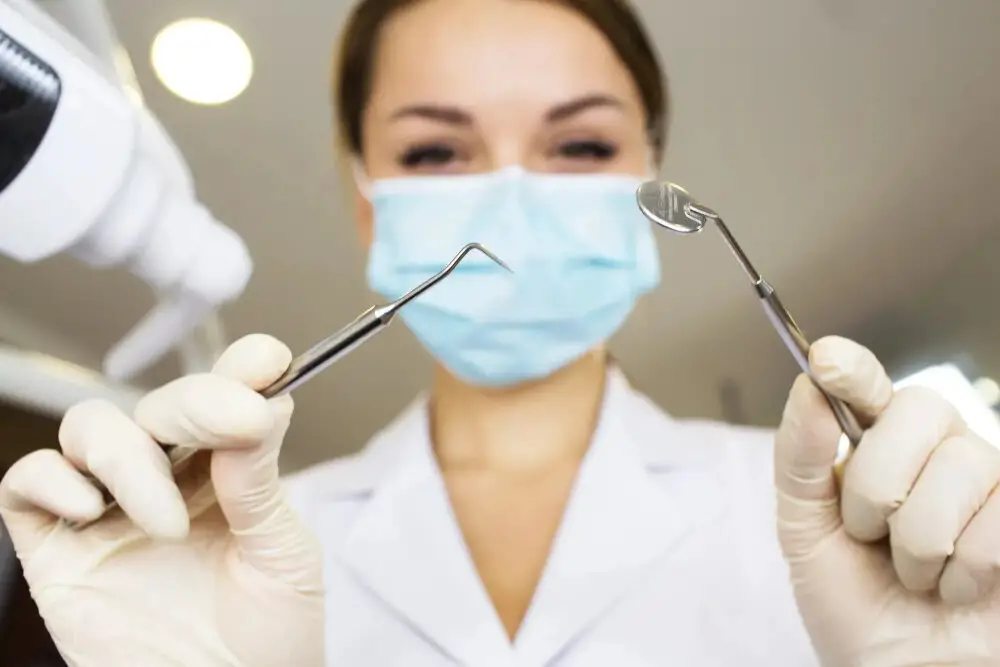
In conclusion, understanding your child’s tooth development is essential to ensure proper oral health and hygiene. Baby teeth serve as a foundation for permanent teeth and play a crucial role in speech development and nutrition. While every child’s tooth development may vary, it is essential to monitor the timeline to detect any potential issues and seek professional advice. Parents can promote healthy habits by encouraging regular brushing, flossing, and dental check-ups. Remember, proper dental care is not only crucial for your child’s overall health but also helps establish good oral hygiene habits that can last a lifetime.


